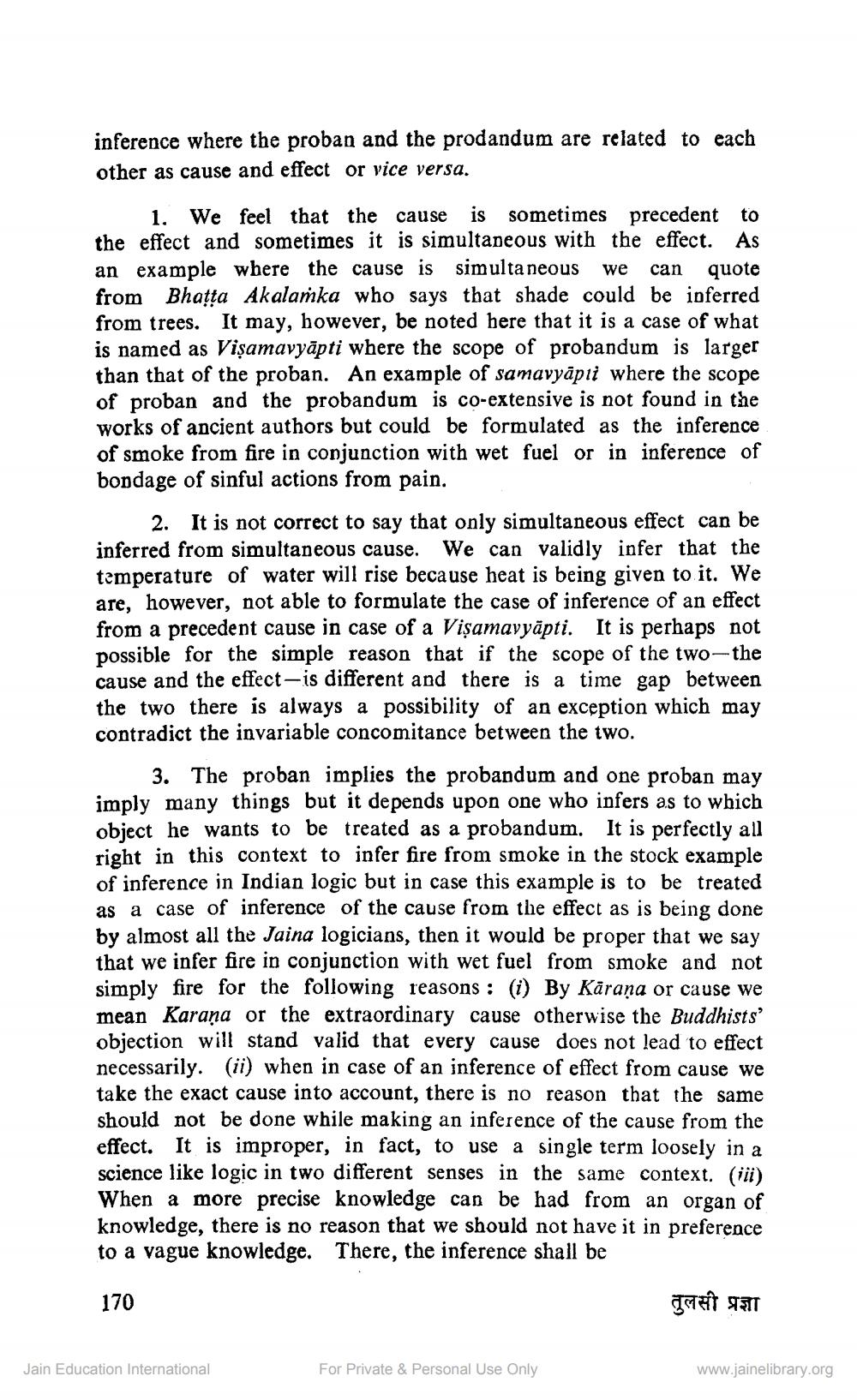________________
inference where the proban and the prodandum are related to each other as cause and effect or vice versa.
1. We feel that the cause is sometimes precedent to the effect and sometimes it is simultaneous with the effect. As an example where the cause is simultaneous we can quote from Bhatta Akalamka who says that shade could be ipferred from trees. It may, however, be noted here that it is a case of what is named as Vişamavyāpti where the scope of probandum is larger than that of the proban. An example of samavyāpii where the scope of proban and the probandum is co-extensive is not found in the works of ancient authors but could be formulated as the inference of smoke from fire in conjunction with wet fuel or in inference of bondage of sinful actions from pain.
2. It is not correct to say that only simultaneous effect can be inferred from simultaneous cause. We can validly infer that the temperature of water will rise because heat is being given to it. We are, however, not able to formulate the case of inference of an effect from a precedent cause in case of a Vişamavyāpti. It is perhaps not possible for the simple reason that if the scope of the two-the cause and the effect is different and there is a time gap between the two there is always a possibility of an exception which may contradict the invariable concomitance between the two.
3. The proban implies the probandum and one proban may imply many things but it depends upon one who infers as to which object he wants to be treated as a probandum. It is perfectly right in this context to infer fire from smoke in the stock example of inference in Indian logic but in case this example is to be treated as a case of inference of the cause from the effect as is being done by almost all the Jaina logicians, then it would be proper that we say that we infer fire in conjunction with wet fuel from smoke and not simply fire for the following reasons : (i) By Kāraṇa or cause we mean Karana or the extraordinary cause otherwise the Buddhists' objection will stand valid that every cause does not lead to effect necessarily. (ii) when in case of an inference of effect from cause we take the exact cause into account, there is no reason that the same should not be done while making an inference of the cause from the effect. It is improper, in fact, to use a single term loosely in a science like logic in two different senses in the same context. (iii) When a more precise knowledge can be had from an organ of knowledge, there is no reason that we should not have it in preference to a vague knowledge. There, the inference shall be
170
तुलसी प्रज्ञा
Jain Education International
For Private & Personal Use Only
www.jainelibrary.org




